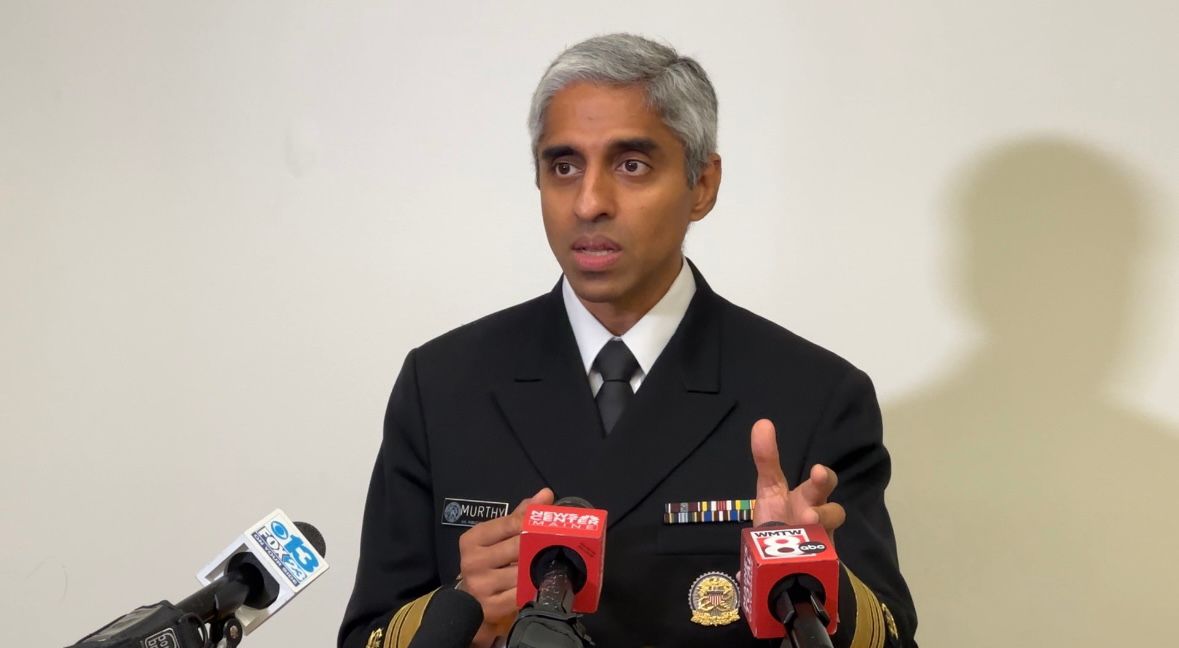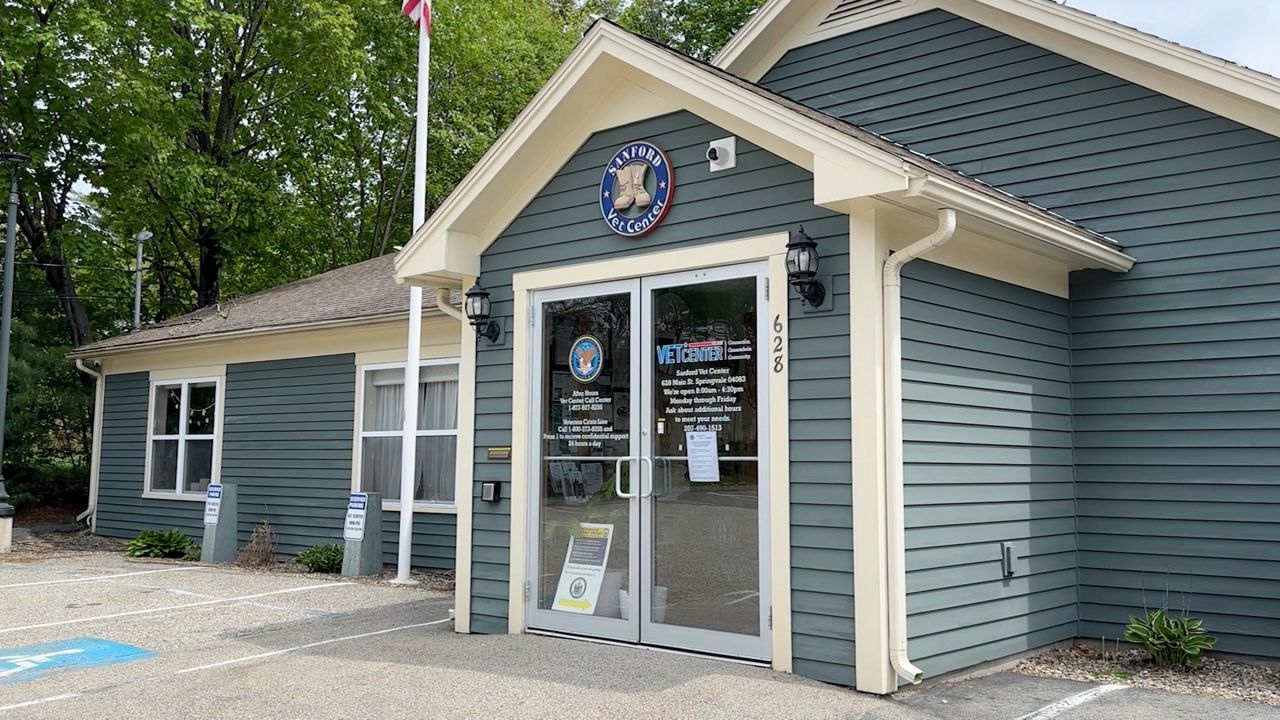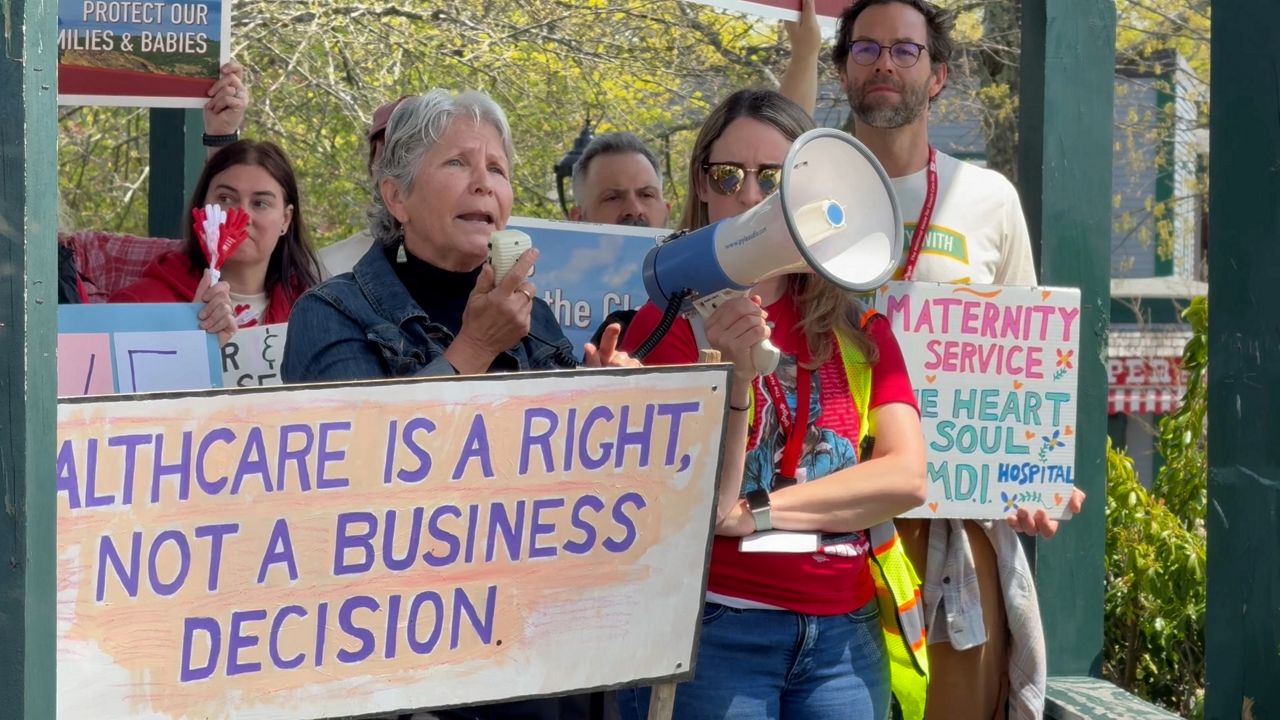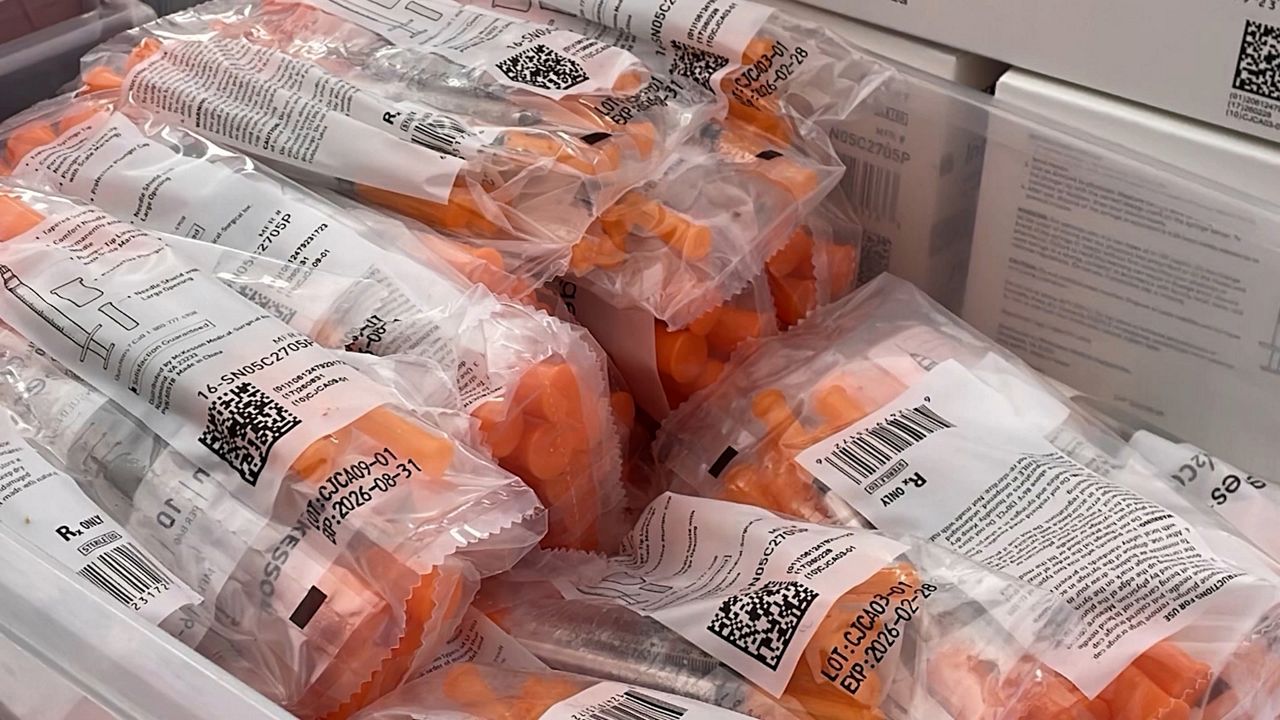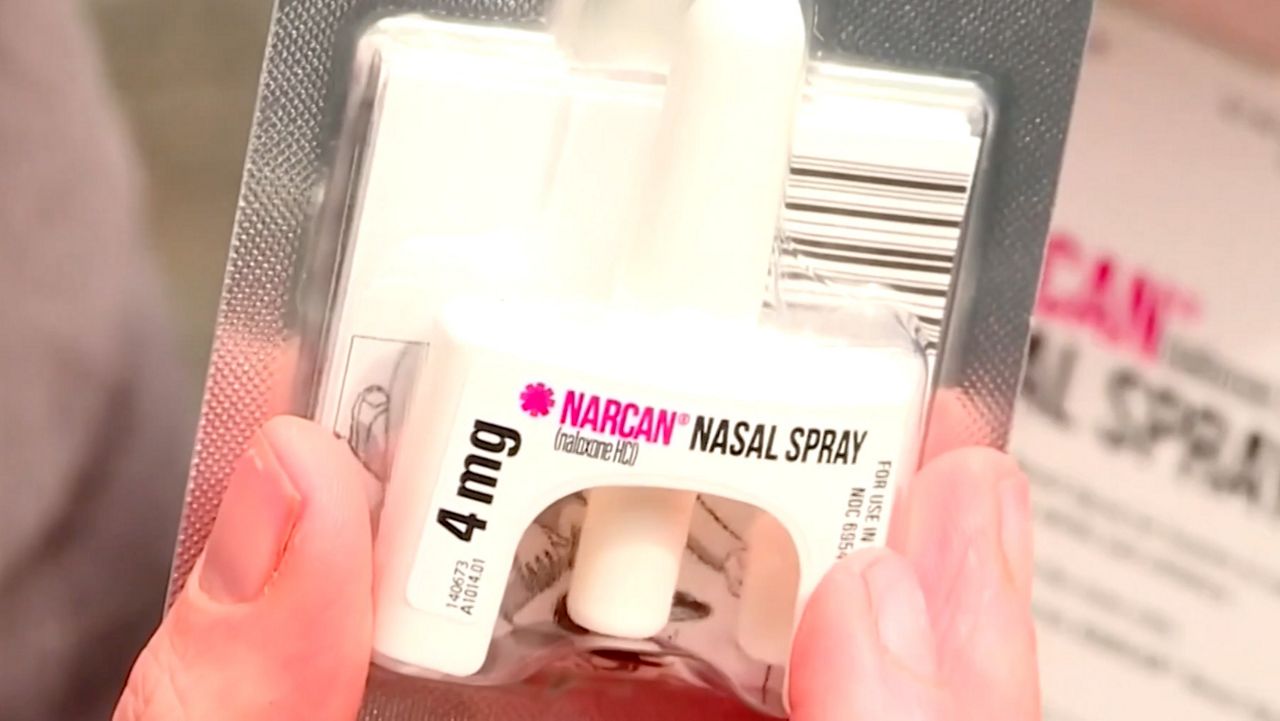U.S. Surgeon General Dr. Vivek Murthy visited Portland Friday to talk about social isolation and loneliness and to share ways everyone can work together to combat it.
He said more than fifty percent of children say they are struggling with loneliness and senior citizens suffer from isolation.
“The more we can talk openly about this and help people recognize this is a common struggle, the more we can come together on investing in solutions and recognizing we can all take steps in our life to help build connection to others,” Murthy said during a visit to the University of Southern Maine.
He said while government programs can help, everyone can reach out to a friend, call a family member or offer to help a new parent. Murthy led a panel discussion with Gov. Janet Mills and officials from the Maine Department of Health and Human Services.
Murthy issued an advisory last year describing loneliness and isolation as an epidemic. He recommended six pillars to advance social connection, including strengthening connections in local communities, enacting pro-connection public policies and reforming digital environments.
In the advisory, he cited statistics that showed about one in two adults reported experiencing loneliness even before the COVID-19 pandemic that shut down the country in 2020.
“Loneliness is far more than just a bad feeling — it harms both individual and societal health,” he wrote. “It is associated with greater risk of cardiovascular disease, dementia, stroke, depression, anxiety, and premature death.”
Social disconnection impacts mortality in ways that are similar to those who smoke up to 15 cigarettes a day, Murthy wrote.
Mills recounted many recent events in Maine that proved challenging, starting with the COVID-19 pandemic that kept people at home, then the Lewiston mass shootings last year that left 18 people dead and finally the three powerful storms that hit in December and January.
She said while Mainers are known for their independence, it’s important for people to reach out when they need help. She encouraged local groups to organize community events.
“Bring back those grange suppers,” she said. “Bring back those community gatherings. Many people go to church and that’s where they find relief from isolation. Many people go to restaurants and bars and they find relief from isolation.”
Sarah Squirrell, state director of the Office of Behavioral Health, said DHHS offers programs such as Be There For Me, which she described as “judgment free resources” for new parents. The state Office of Aging helps senior citizens. And the StrengthenME program offers stress management resources.
She and others on the panel said neighbors checking on neighbors after a storm is another simple way to build community connections.
Murthy urged Mainers to consider their mental fitness as important as their physical fitness. He said taking care of your mental health is “no different than going to the gym.”
And he said those who are lonely should consider volunteering.
“When we serve others, we not only establish a connection with them but we remind ourselves we have value to bring to the world,” he said.
Many of Murthy’s comments focused on the elderly and teenagers, who he believes are especially vulnerable to loneliness because of the time they spend on their cellphones and on social media.
He said he recently visited a school in another state that had banned cellphones during the school day. The students told him that they were skeptical at first, but later discovered that they finally got to know their classmates when they did not have their phones to distract them.
While answering questions from the media after the event, Mills said she is not planning to introduce a statewide school cellphone ban. She said it’s up to local district to make those kinds of decisions.
“I wouldn’t try to mandate that statewide, but I think it’s a great practice,” she said. “I think it is working and a lot of school boards across Maine, a lot of communities are talking about that and doing that.”
Murthy said he came to Maine to help with a discussion about loneliness at a time when many people feel shameful about being lonely. He shared personal stories about feeling lonely as a child and even as an adult when he realized his professional life had led him to neglect his friendships.
“We need to get this issue out there and have people start talking about it so we recognize actually we’re not the only ones struggling,” he said. “A lot of us are.”





